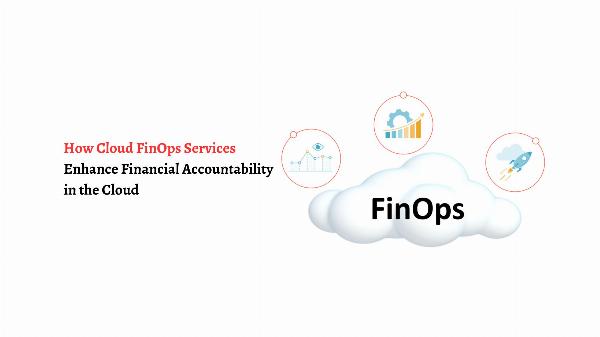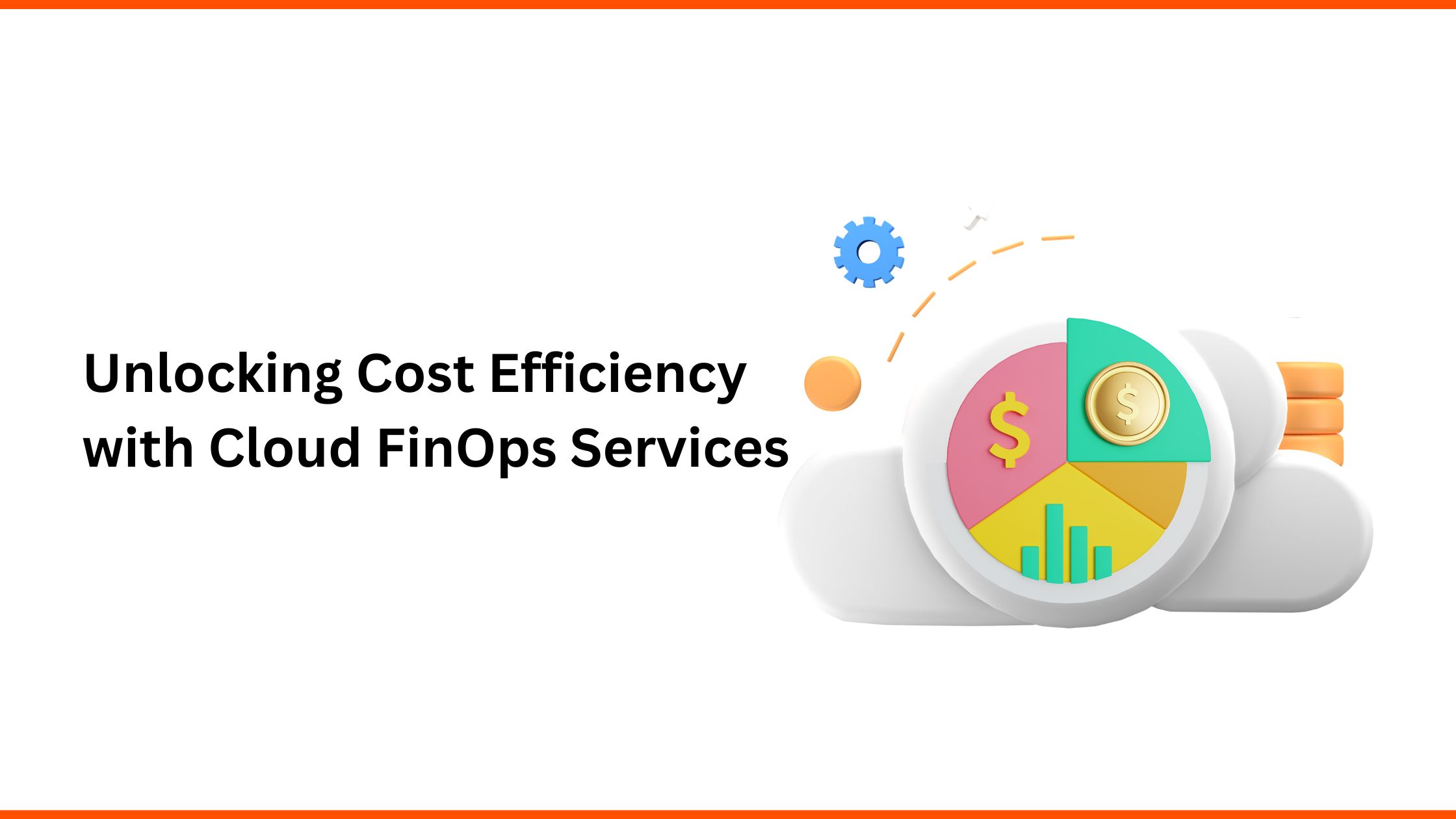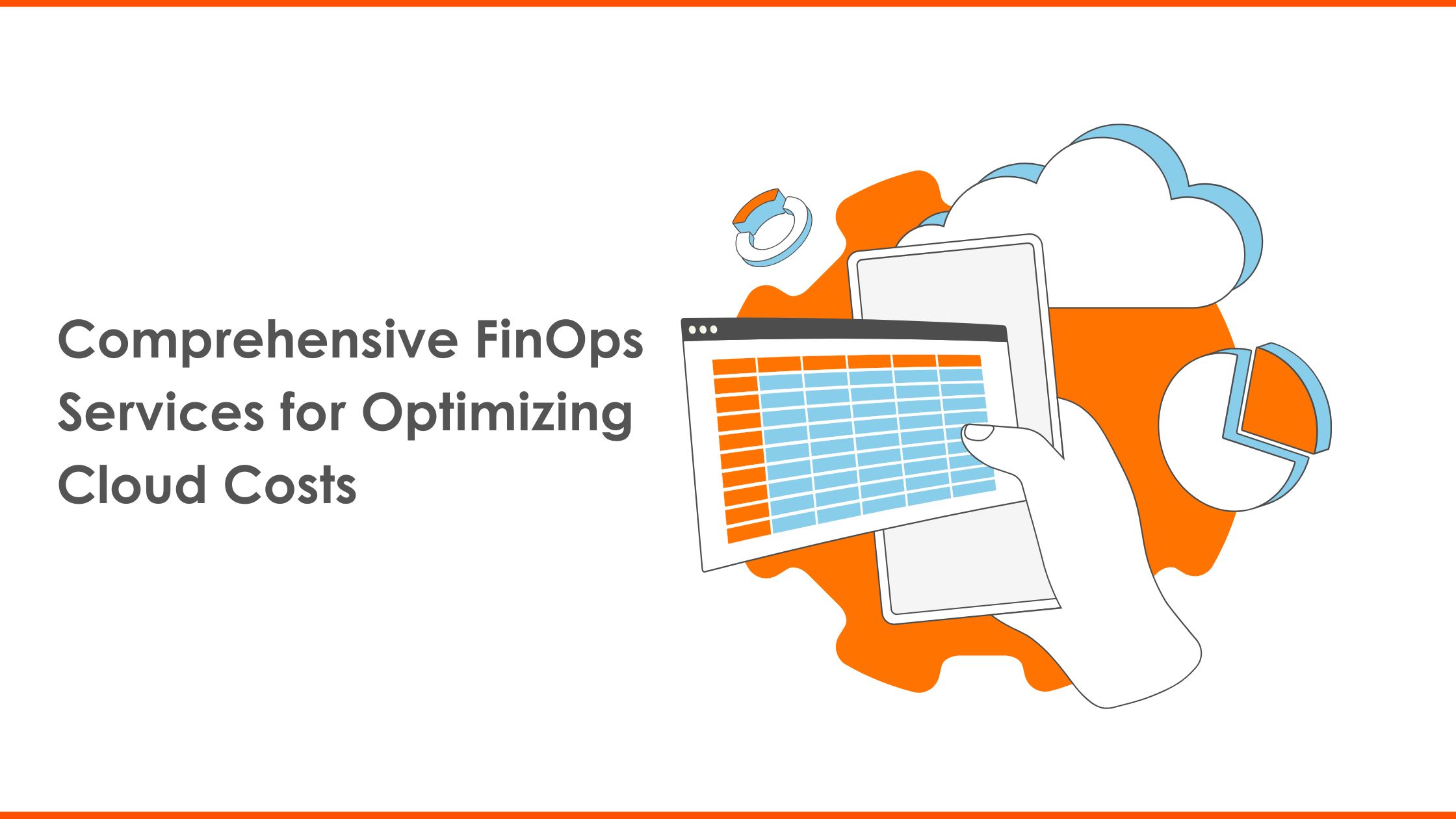How Cloud FinOps Services Enhance Financial Accountability in the Cloud

The Financial Challenge of Cloud Adoption
As more businesses adopt cloud computing, managing cloud costs has emerged as a significant challenge. The pay-as-you-go model of cloud services offers flexibility but can also lead to unpredictable and sometimes uncontrollable spending. To address this challenge, organizations are turning to Cloud FinOps Services to enhance financial accountability and ensure that cloud spending aligns with business objectives.
In this blog, we will discuss how Cloud FinOps Services play a crucial role in improving financial accountability in cloud environments.
The Role of Financial Accountability in Cloud FinOps Services
Cloud FinOps Services focus on bringing financial discipline to cloud operations by ensuring that all cloud spending is tracked, managed, and optimized. This approach promotes transparency, accountability, and strategic decision-making across the organization.
Key Components of Financial Accountability in Cloud FinOps:
Cost Transparency: One of the primary goals of Cloud FinOps is to provide visibility into cloud spending across the organization. This transparency allows stakeholders to understand where costs are incurred, how resources are used, and where optimization opportunities exist.
Budget Alignment: Cloud FinOps ensures that cloud spending is aligned with the organization's budget and financial goals. By setting clear budgets and tracking spending in real-time, organizations can avoid unexpected costs and stay within their financial targets.
Stakeholder Collaboration: Financial accountability in the cloud requires collaboration between finance, operations, and technology teams. Cloud FinOps Services facilitate this collaboration by providing a framework for shared decision-making and responsibility.
Example: A healthcare organization might use Cloud FinOps Services to track cloud spending across multiple departments, ensuring that each department stays within its allocated budget while maintaining the necessary resources for patient care.
The Benefits of Enhancing Financial Accountability with Cloud FinOps Services
Implementing Cloud FinOps Services to enhance financial accountability offers several key benefits for organizations, including improved cost management, better decision-making, and increased transparency.
Key Benefits of Financial Accountability in Cloud FinOps:
Improved Cost Management: By providing real-time insights into cloud spending, Cloud FinOps allows organizations to manage costs more effectively. This includes identifying areas of waste, optimizing resource allocation, and ensuring that spending aligns with financial goals.
Better Decision-Making: With greater visibility into cloud expenditures, decision-makers can make more informed choices about resource allocation, pricing models, and infrastructure investments. This leads to better financial outcomes and supports long-term growth.
Increased Transparency: Cloud FinOps Services promote transparency by providing detailed reports and dashboards that track cloud spending. This transparency helps build trust among stakeholders and ensures that everyone is aligned with the organization's financial objectives.
Risk Mitigation: By closely monitoring cloud spending and aligning it with budgets, Cloud FinOps helps organizations mitigate the financial risks associated with cloud adoption, such as overspending or underutilization of resources.
Example: An e-commerce company might use Cloud FinOps Services to create detailed cost reports for its cloud-based inventory management system, allowing the finance team to identify cost-saving opportunities and allocate resources more efficiently.
Best Practices for Implementing Financial Accountability with Cloud FinOps Services
To successfully implement Cloud FinOps Services and enhance financial accountability, organizations should consider the following best practices:
1. Establish Clear Financial Goals
Before implementing Cloud FinOps, it's essential to establish clear financial goals that align with the organization's overall strategy. These goals should guide all cloud spending decisions and provide a framework for accountability.
2. Involve Key Stakeholders
Financial accountability requires collaboration across different teams, including finance, operations, and technology. Involve key stakeholders in the Cloud FinOps process to ensure that everyone understands their role in managing cloud costs and that decisions are made collaboratively.
3. Use Advanced Reporting Tools
Leverage advanced reporting tools to track cloud spending and generate detailed reports. These tools provide the insights needed to manage costs effectively and ensure that spending aligns with financial goals.
4. Regularly Review and Optimize
Continuous review and optimization are critical to maintaining financial accountability in the cloud. Regularly review cloud spending, identify areas for improvement, and adjust budgets and resource allocations as needed.
Example: A financial services firm might implement regular cost reviews as part of its Cloud FinOps strategy, ensuring that its cloud-based trading platforms remain within budget and optimized for performance.
Conclusion: Achieving Financial Accountability with Cloud FinOps Services
Enhancing financial accountability is a key objective of Cloud FinOps Services. By providing transparency, promoting collaboration, and aligning cloud spending with business goals, FinOps helps organizations manage their cloud costs more effectively and achieve better financial outcomes.
For organizations looking to optimize their cloud investments and ensure financial accountability, Cloud FinOps Services offer the tools and expertise needed to succeed in today's complex cloud environments.
Note: IndiBlogHub features both user-submitted and editorial content. We do not verify third-party contributions. Read our Disclaimer and Privacy Policyfor details.







